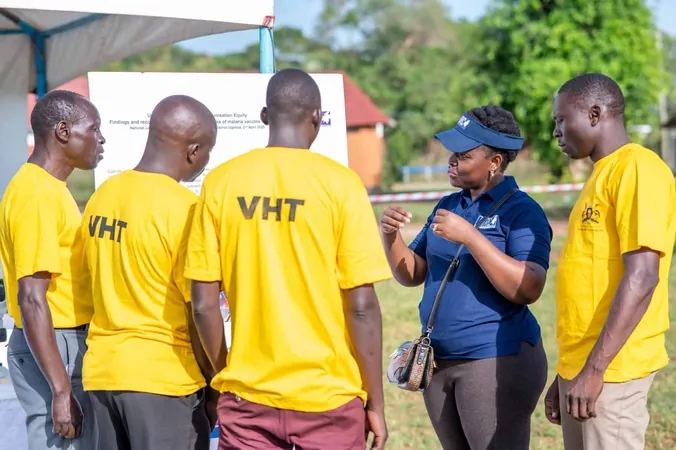
Unlocking the Secrets to Effective Knowledge Translation: Measure Your Impact Now!
2025-04-25
Author: Charlotte
The Power of Knowledge Translation in Public Health
In the ever-evolving world of public health, the bridge between research and action is what we call Knowledge Translation (KT). For researchers, KT is more than just a buzzword; it’s a vital process that transforms evidence into actionable insights. But here’s the tricky part: How do you know if your efforts are truly making a difference?
Measuring Meaningful Change
Let’s face it—simply sharing findings isn’t enough. To ensure that research translates into real-world impact, we must ask the critical question: 'So what?' Are workshop attendees merely listening, or are they applying these insights to enhance immunization outreach and policy development? Success in KT isn’t just about distribution—it’s about actionable change.
Beyond Clicks: Smart Strategies for Measuring Impact
Effective KT measurement needs thoughtfully chosen indicators that span the entire process—from dissemination to action and outcomes. Here’s a breakdown:
- **Process Indicators:** Assessing if KT activities rolled out as intended.
- **Reach Indicators:** Identifying the audience engaged with your research—think downloads or event participation.
- **Use Indicators:** Evaluating if stakeholders found the knowledge useful and relevant.
- **Action Indicators:** Keeping track of whether stakeholders utilized this knowledge in their strategies and protocols.
- **Change Indicators:** Monitoring whether these actions led to significant shifts in policy or practice.
- **Outcome Indicators:** Finally, measuring whether these changes resulted in improved health outcomes, like better immunization rates.
Simple Tools for Tracking KT Impact
Measuring KT doesn’t have to be complex. Consider these straightforward strategies to gauge your impact:
- Use brief surveys or phone interviews to collect feedback on research application.
- Monitor policy developments to see how recommendations are being integrated.
- Engage in social media to prompt discussions that can drive action.
- Develop case studies to illustrate how research has influenced decision-making.
Real-World Success: A Case Study from Uganda
In Uganda, findings from the Zero-Dose Learning Hub have sparked vital conversations at both national and local levels. Leveraging research, the Uganda National Expanded Program on Immunization (UNEPI) identified high-risk groups, including migrant populations. Equipped with insights about the critical role of Village Health Teams (VHTs), they focused on reaching zero-dose (ZD) children effectively.
Research revealed several obstacles—like delayed payments and training gaps—that threatened this approach's sustainability. Addressing these challenges prompted meaningful dialogue among UNEPI and district health teams, leading to actionable solutions.
In Mubende district, insights directly informed outreach strategies to ensure vulnerable children were reached, prioritizing VHT follow-ups and coordinating service areas. This hands-on approach resulted in substantial support from AMREF and CDC Africa, enhancing microplanning and broadening outreach efforts.
The Journey Continues: Learning and Adapting in KT
Knowledge Translation is not merely about sharing information—it’s about creating a feedback loop that fosters learning and improvement. By systematically tracking reach, use, and outcomes, public health researchers can fine-tune their KT strategies. Remember, measuring KT impact is less about proving success and more about driving real, transformative change in communities.









 Brasil (PT)
Brasil (PT)
 Canada (EN)
Canada (EN)
 Chile (ES)
Chile (ES)
 Česko (CS)
Česko (CS)
 대한민국 (KO)
대한민국 (KO)
 España (ES)
España (ES)
 France (FR)
France (FR)
 Hong Kong (EN)
Hong Kong (EN)
 Italia (IT)
Italia (IT)
 日本 (JA)
日本 (JA)
 Magyarország (HU)
Magyarország (HU)
 Norge (NO)
Norge (NO)
 Polska (PL)
Polska (PL)
 Schweiz (DE)
Schweiz (DE)
 Singapore (EN)
Singapore (EN)
 Sverige (SV)
Sverige (SV)
 Suomi (FI)
Suomi (FI)
 Türkiye (TR)
Türkiye (TR)
 الإمارات العربية المتحدة (AR)
الإمارات العربية المتحدة (AR)